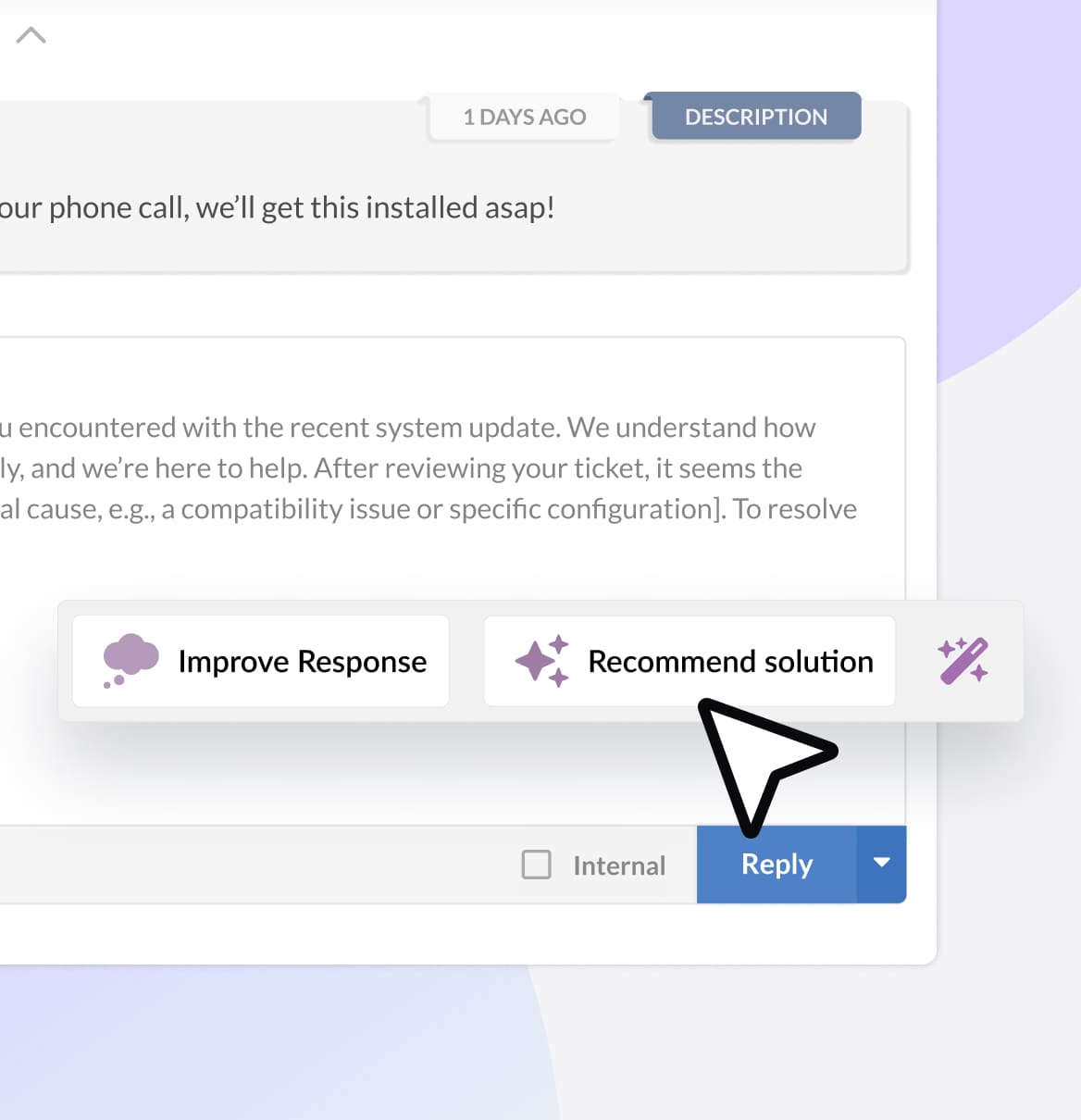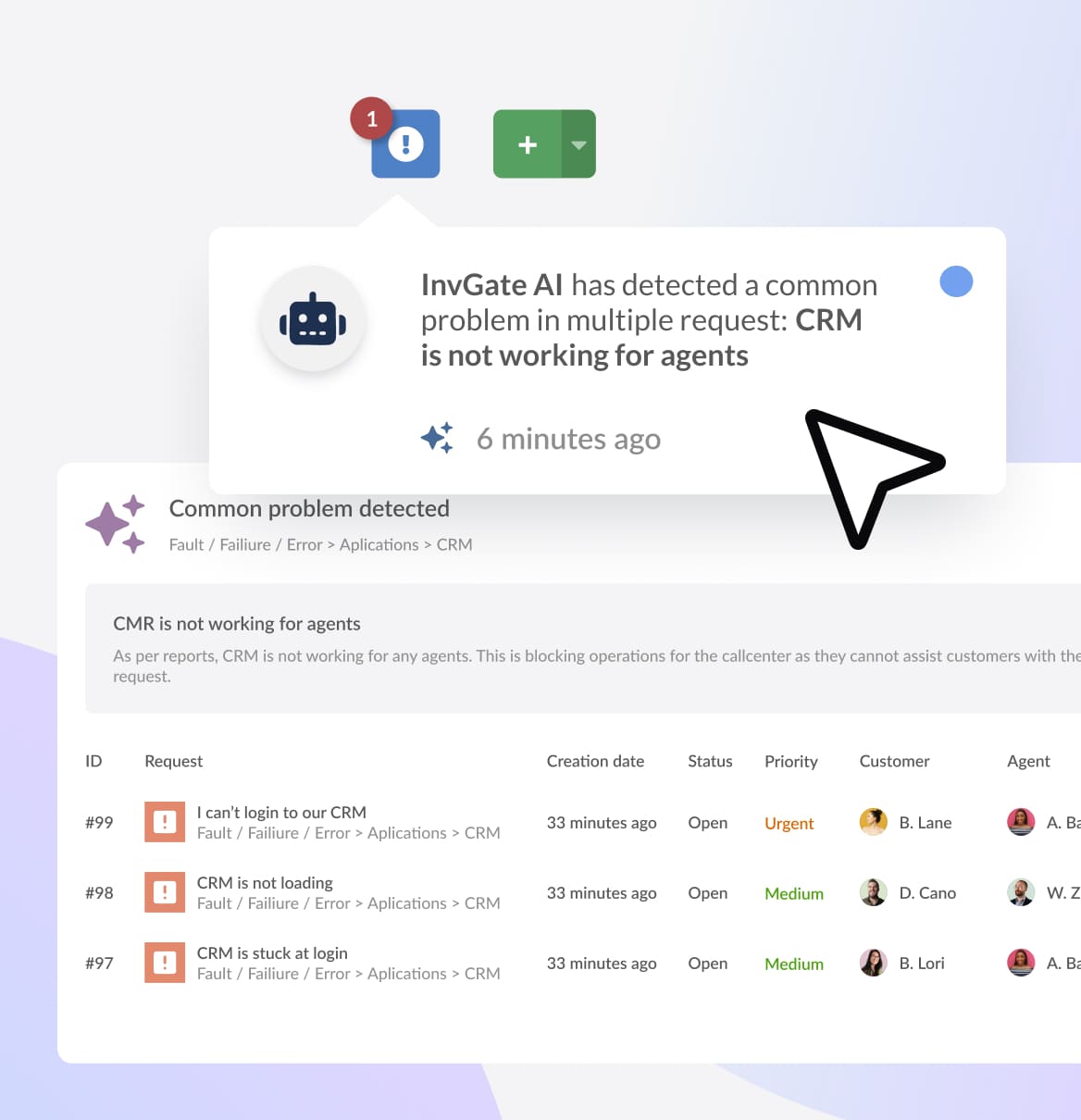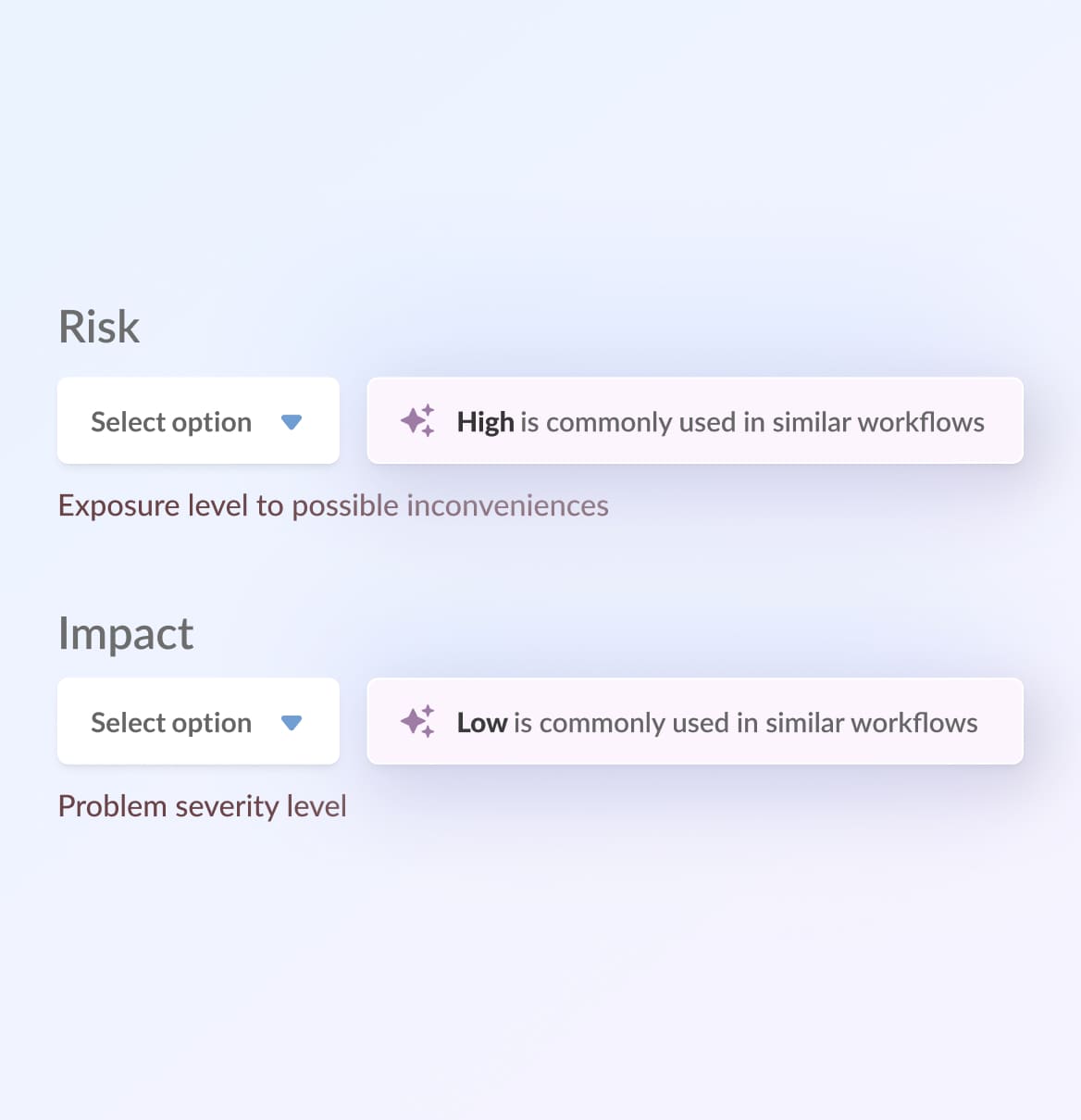At InvGate, we are committed to harnessing the power of AI to redefine Service Management practices. Since launching AI Hub, featuring the first wave of AI-powered capabilities within InvGate Service Management and Asset Management, over 50% of our clients have adopted them and saved dozens of thousands of hours. Our most impactful solutions have focused on enhancing decision-making processes, enabling teams to work smarter and achieve better outcomes.
Today, we are announcing the next batch of AI-augmented capabilities for InvGate Service Management!
So far, you could use artificial intelligence (AI) to summarize requests, craft ticket replies, generate service catalog categories, draft knowledge articles, and improve the Virtual Agent experience.
The new AI-powered capabilities of InvGate Service Management introduce us further into the second wave of AI, which innovates in terms of agent augmentation, employee service, and business continuity.

InvGate Service Management's new augmentation capabilities
Turnover is a big issue for help desk teams. In fact, Gartner found only 29% of IT workers have high intent to stay with current employer. Higher turnover means managers need to invest valuable hours training and ramping new team members and service suffering as a consequence.
This is why we developed this new set of capabilities. They are all about productivity for agents and employees: minimizing agents’ ramp time and learning curves to ensure faster resolutions for your employees.
Let’s take a look.
Solution Recommendation

Solution Recommendation analyzes the ticket's content and context, then looks at knowledge base articles, similar previous tickets, and open knowledge from the internet to generate a complete, ready-to-use solution
The key benefits early users are seeing are:
- Improving first-response times by providing agents with detailed, pre-written solutions during the initial interaction.
- Freeing up agents to focus on complex cases and boosting overall team productivity.
Expert Collaboration Suggestion

Expert Collaboration Suggestion proposes collaborators who have resolved similar tickets and received high satisfaction scores to resolve specialized or cross-departmental issues.
The criteria it uses to generate the suggestions are as follows:
- It analyzes ticket details, context, and agent expertise.
- It prioritizes recommendations based on relevant skills, past performance, and ticket complexity.
This speeds up the ticket resolution process by connecting tickets to the most qualified agents. And there's a nice bonus: it also encourages a coordinated approach to problem-solving.
Smart Request Escalation
Smart Request Escalation is a handy feature that contributes to preventing service level agreement (SLA) breaches.
It tracks ticket progress and analyzes historical resolution data to predict requests at risk of missing SLA deadlines. Once spotted, it suggests a ticket escalation, to allow for timely intervention by agents or supervisors and SLA compliance.
Major Incident Detection

As the name indicates, Major Incident Detection identifies major incident candidates and suggests creating a major incident to prevent them from escalating further and ensure business continuity.
It leverages AI to analyze reported incidents, detects patterns indicating a potential major incident in real-time, and notifies help desk coordinators of potential major incidents for immediate review and action.
By including this new feature in the InvGate AI Hub, we aim to provide quicker evaluation and prioritization of high-impact incidents and support faster, coordinated responses that minimize our clients' service disruptions and operational impact.
Common Problem Detection

Common Problem Detection was created to help with the Problem Management process. It identifies recurring issues, analyzes their root causes to detect similarities and suggests a problem ticket creation to prevent future related incidents.
The benefits are pretty self-evident:
- Preventing future incidents by addressing recurring problems at their source.
- Optimizing resource allocation, enabling teams to focus on impactful problem resolution instead of repeatedly managing symptoms.
Predictive Risk And Impact Analysis

The last AI Hub addition proactively assesses and suggests the risk and impact of change requests based on historical cases and similar requests.
Predictive Risk And Impact Analysis leverages predictive analysis to improve Risk Management by proactively identifying high-impact and high-risk requests. The goal is to prevent your team from underestimating the risk or impact of a request and ensure business continuity.
Conclusion
Overall, InvGate AI Hub's new features seek to provide organizations with relevant tools to:
- Reduce resolution times and operational costs while increasing agent and employee productivity.
- Improve service stability by minimizing recurring incidents.
- Maintain service continuity, reducing downtime and operational delays by addressing major incidents proactively.
- Improve service continuity by (helping to) reduce resolution delays for critical issues.
With their addition, we end 2024 with 11 AI-powered capabilities that use artificial intelligence to serve IT teams and augment agents' capabilities so that they can put their time and effort where it matters most.
About InvGate AI Hub
We launched InvGate AI Hub earlier this year to unify all our product's AI features. At its heart is our commitment to building tools service teams use to enable every other team in the company.
Its main advantages include providing support teams more autonomy and automation capabilities, decreasing ticket volume, and improving your end-user experience.
Currently, the AI Hub is free for cloud and on-premise users. You can enable its features from Settings >> AI Hub. And if you haven't tried InvGate Service Management yet, get in touch with our team who can set you up with a trial instance!















